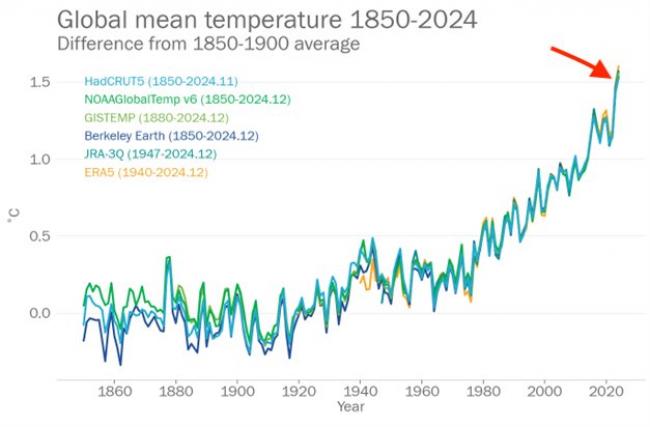But here’s the twist: just as the climate crisis accelerates, we’re at risk of losing our ability to track what’s happening.
The satellites that measure Earth’s energy imbalance—a critical indicator of how much heat the planet is absorbing—are aging fast. By the early 2030s, we may be relying on just one remaining satellite to monitor what James Hansen calls “the single most important number in climate science.” Even worse, there are no confirmed plans to replace them.
At the same time, the U.S. administration is planning to end the land lease for the Mauna Loa Observatory, home to the world’s longest continuous record of atmospheric CO₂—our planet’s “climate heartbeat.” This puts the future of that critical monitoring site in serious jeopardy. Watch our ' Make Science Great Again' Paris panel explaining this alarming decision.
Meanwhile, climate science itself is under political attack. Funding is being cut. Monitoring systems are being threatened. And the scientists we rely on to sound the alarm? They’re being ignored, sidelined, or dismissed as just another opinion—right when we need them most.
You don’t fight a fire by ripping out the smoke detectors—and we won’t solve the climate crisis by silencing the science.


